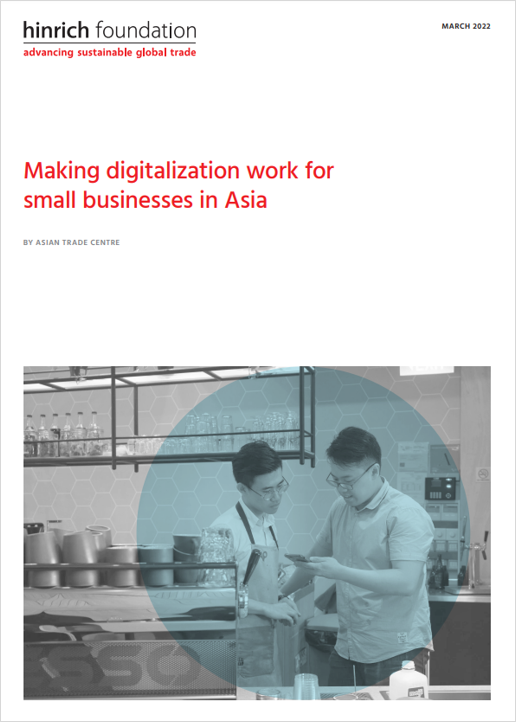Digital trade
Making digitalization work for small businesses in Asia
Published 22 March 2022
Correctly leveraged, digitalization offers significant benefits to firms that can navigate new technologies, creating access to new customers and opportunities. By ensuring small businesses have access to digital tools through supportive infrastructure and regulatory frameworks, governments play a key role in advancing the sustainable growth of societies as a whole.
By boosting efficiency and enabling innovation, digital technologies stand to benefit nearly every sector of society. Micro, small, and medium enterprises (MSMEs) find substantial benefits from participating in the digital economy. As they constitute the vast majority of firms and a significant portion of total gross domestic product (GDP) in the Asia-Pacific region, encouraging vibrant, competitive, and digitally empowered MSMEs is key to continued economic growth and development.
But the digital economy is viewed with skepticism by some, who argue that MSMEs struggle to keep up with the likes of digital platforms that twist competitive forces in their favour, leverage big data, and engage in anti-competitive behavior. While it is true that small businesses are particularly vulnerable to risks, this perspective ignores the role platforms have played in expanding access to new markets, simplifying logistics, and more.
How can the digital transformation contribute to the Sustainable Development Goals? Why do certain international organizations recommend the adoption of digital protectionism? What are regional governments doing to facilitate digitalization of their economies? Download this paper by the Asia Trade Centre to find out.
Download Making digitalization work for
small businesses in Asia by Asian Trade Centre:

© The Hinrich Foundation. See our website Terms and conditions for our copyright and reprint policy. All statements of fact and the views, conclusions and recommendations expressed in this publication are the sole responsibility of the author(s).
Author
Asian Trade Centre
The Asian Trade Centre (ATC) is the premier regional thought leader, advocate and educator for trade in Asia.
Have any feedback on this article?
Related Articles

Increasing access and interoperability of cross-border e-payments in Asia
07 April 2021

The turtle and the gazelle: Can competition policies effectively regulate the digital economy?
07 December 2021

Increasing access and interoperability of cross-border e-payments in Asia
07 April 2021

The turtle and the gazelle: Can competition policies effectively regulate the digital economy?
07 December 2021




